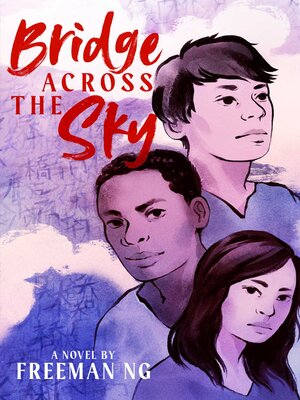
Sign up to save your library
With an OverDrive account, you can save your favorite libraries for at-a-glance information about availability. Find out more about OverDrive accounts.
Find this title in Libby, the library reading app by OverDrive.



Search for a digital library with this title
Title found at these libraries:
| Loading... |
A "lyrical and introspective" (Publishers Weekly, starred review) historical novel in verse about a Chinese teen who immigrates to the United States with his family and endures mistreatment at the Angel Island Immigration Station while trying to navigate his own course in a new world.
Tai Go and his family have crossed an ocean wider than a thousand rivers, joining countless other Chinese immigrants in search of a better life in the United States. Instead, they're met with hostility and racism. Empowered by the Chinese Exclusion Act, the government detains the immigrants on Angel Island in the San Francisco Bay while evaluating their claims.
Held there indefinitely, Tai Go experiences the prison-like conditions, humiliating medical exams, and interrogations designed to trick detainees into failure. Yet amid the anger and sorrow, Tai Go also finds hope—in the poems carved into the walls of the barracks by others who have been detained there, in the actions of a group of fellow detainees who are ready to fight for their rights, in the friends he makes, and in a perceived enemy whose otherness he must come to terms with.
Unhappy at first with his father's decision to come to the United States, Tai Go must overcome the racism he discovers in both others and himself and forge his own version of the American Dream.
Tai Go and his family have crossed an ocean wider than a thousand rivers, joining countless other Chinese immigrants in search of a better life in the United States. Instead, they're met with hostility and racism. Empowered by the Chinese Exclusion Act, the government detains the immigrants on Angel Island in the San Francisco Bay while evaluating their claims.
Held there indefinitely, Tai Go experiences the prison-like conditions, humiliating medical exams, and interrogations designed to trick detainees into failure. Yet amid the anger and sorrow, Tai Go also finds hope—in the poems carved into the walls of the barracks by others who have been detained there, in the actions of a group of fellow detainees who are ready to fight for their rights, in the friends he makes, and in a perceived enemy whose otherness he must come to terms with.
Unhappy at first with his father's decision to come to the United States, Tai Go must overcome the racism he discovers in both others and himself and forge his own version of the American Dream.






